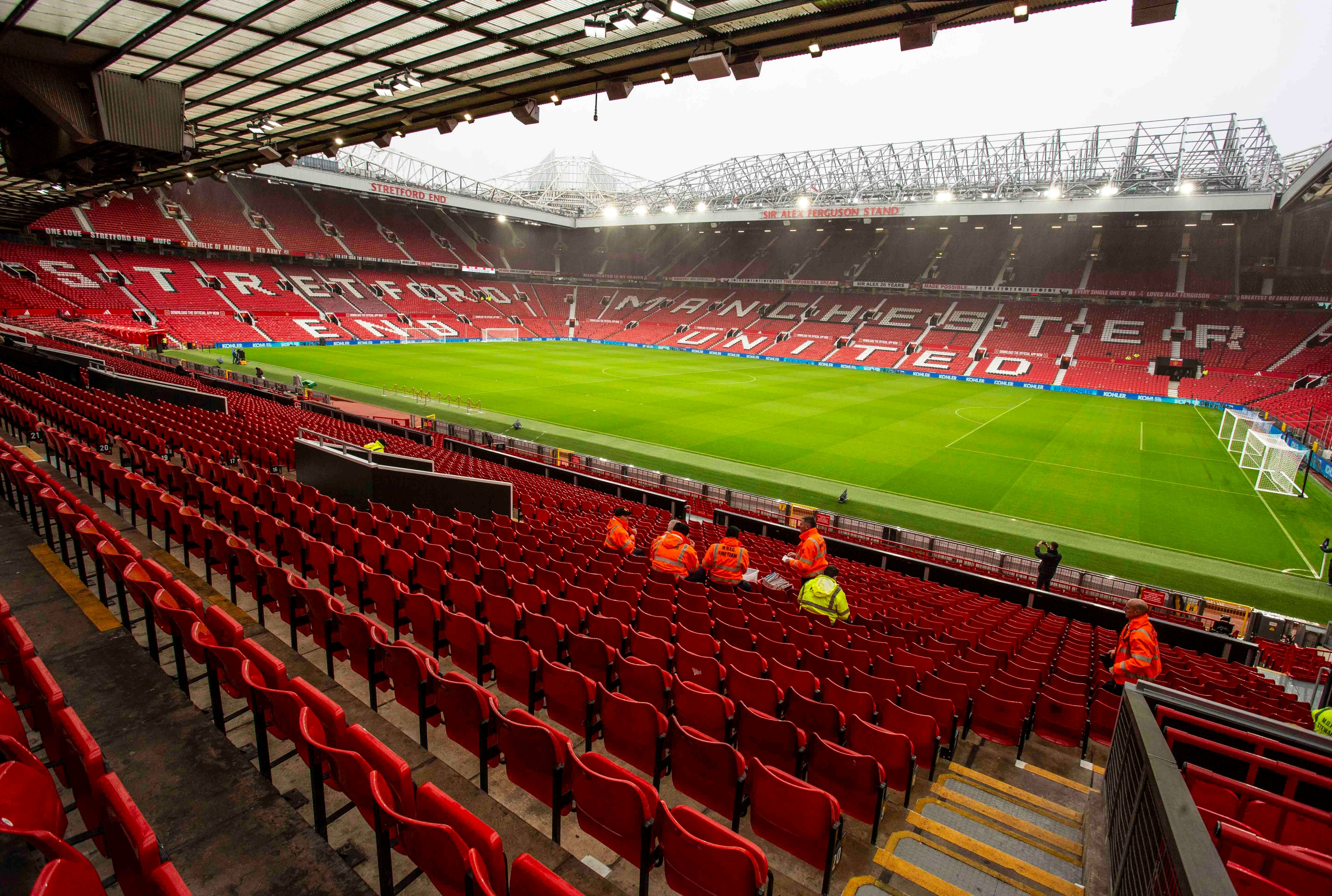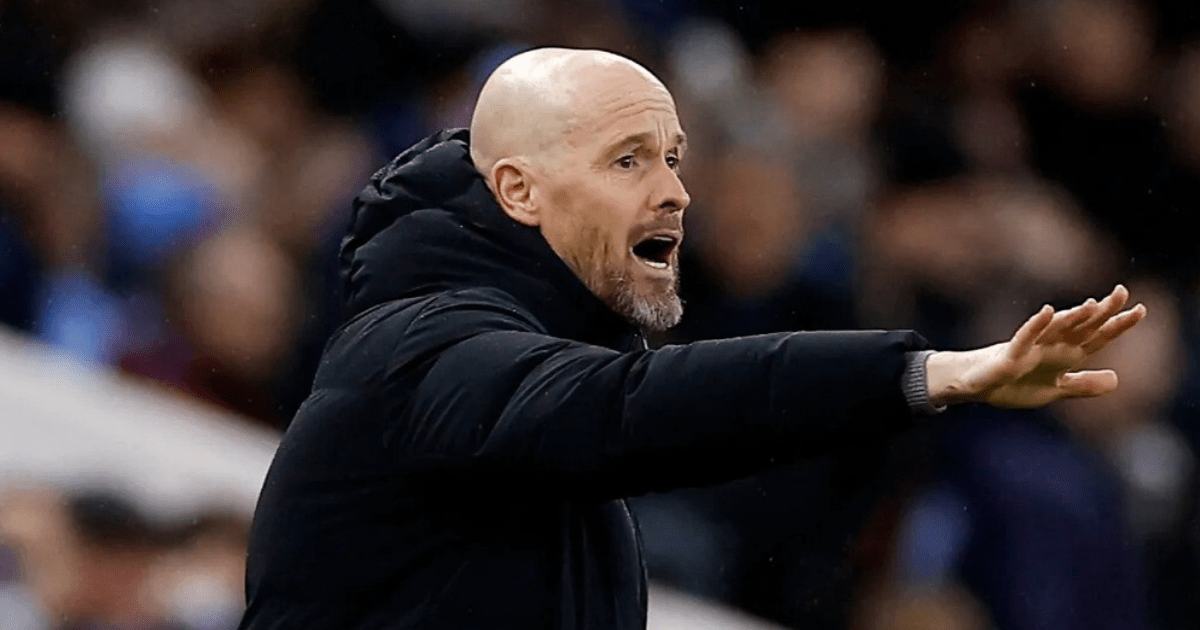Preserving the Legacy
Manchester United fans were left disheartened when it was revealed that minority stakeholder Sir Jim Ratcliffe planned to move the club to a new stadium. But why demolish a historic landmark that holds so many cherished memories?
A Home with Quirks and Charm
Old Trafford may have its imperfections, but it's a place where fans have fallen in love with football and Manchester United. The atmosphere is electric, filled with passion and nostalgia. It's more than just a stadium; it's a treasure trove of memories.
Memories Made to Last
Countless fans have visited Old Trafford to witness the magic of the game and create lasting memories. From family outings to witnessing iconic moments, the stadium holds a special place in the hearts of many.
Preserving Tradition
Old Trafford is a testament to the club's history and legacy. Moving to a new stadium could jeopardize the unique identity that sets Manchester United apart from other clubs in the Premier League.

Safety First, Nostalgia Second
While nostalgia is important, safety should always come first. Old stadiums may require updates and renovations, but demolishing them should not be the immediate solution. With proper care and maintenance, Old Trafford can continue to be a symbol of pride for Manchester United.
Building the Future
Instead of focusing on demolishing Old Trafford, Manchester United should prioritize strengthening their squad. Investing in new players and improving team performance will ultimately bring more success and happiness to the fans.
Let's preserve the history, memories, and charm that Old Trafford represents. It's time to prioritize the squad and keep the legacy alive.
Frequently Asked Questions
What is the rule of offside in football?
Offside is a rule that prevents players from gaining unfair advantages. A player is in an offside position if any part of their head, body, or feet is in the opposing team’s half of the pitch, closer to the opponent’s goal line than both the ball and the second-to-last opponent (typically the last outfield player) at the moment the ball is played to them. It’s important to note that being in an offside position is not an offense in itself, but it becomes an offense if the player actively involves themselves in the play, gains an advantage, or interferes with an opponent while in that position.
How does one become a proficient football goalkeeper?
It takes specialized training to become an expert goalkeeper. This includes reflexes, agility and positioning. A goalkeeper must excel at shot-stopping, command of the penalty area through proficient catching and punching, and distribution with both hands and feet. Mental resilience, decision making under stress, and effective communication are all key elements of goalkeeping. Goalkeeping requires constant practice, feedback from coaches and analysis of performances to identify improvements.
How important is teamwork in football and how can it be fostered?
Teamwork is essential in football, as the success of the team relies on the cooperative effort of all players. Teamwork can be developed by gaining a thorough understanding of each player’s role and the team’s strategy. Communication, on and of the field, is key. So is trust between teammates. Team bonding activities, such as collective goal-setting and team bonding games, can enhance the sense unity and commitment of the team to its objectives. A positive team culture, encouraged by respectful and supportive behavior, also nurtures teamwork.
What can I do to stay motivated, focused and improve my soccer skills?
Setting clear and attainable goals, and keeping track of your progress is essential to staying motivated and focused. Regularly reviewing performance in training and match can help identify strengths and areas to improve. Finding a trainer or joining an online community can create supportive relationships and encourage persistence. Visualizing success and keeping a good attitude can also help motivate. Incorporating diversity in practice routines, allowing sufficient recovery and rest time and keeping practices interesting are important strategies for maintaining motivation and focus.
What are the fundamental skills necessary to play great soccer?
To play the best football possible, a player needs to have a mix of technical skills, tactics, physical abilities, and mental capabilities. Technical skills are ball control, dribbling passing and shooting. Tactical skills include understanding the game in terms of positioning, movements, and decisions. For performance, physical attributes such as endurance, speed and strength are essential. Finaly, mental toughness and focus are crucial to maintaining performance through a match.
Statistics
- Defensive units that practice coordinated drills together at least twice a week concede 18% fewer goals in match play.
- Players who train for more than 10 hours a week show a 20% improvement in technique compared to those who train for less time.
- Coaches who engage in continuous professional development contribute to a 40% better win ratio for their teams.
- A consistent mental focus regimen, including visualization techniques, can enhance player concentration levels by up to 20% during matches.
- Goalkeepers who engage in specialized reaction-time training reduce their goals-conceded tally by an average of 25% over a season.
External Links
fai.ie
myfootballcoach.com
fifa.com
uefa.com
ffacoach.com
How To
How to Sharpen Football Shooting Skills
In order to improve your shooting skills, you should practice different types of finishing, such as power shot, placement shot, and volleys. Shoot from different angles to improve your finishing. Consider using drills which simulate different game scenarios. For example, receiving a pass while facing your goal and finishing on the fly. By analyzing the body mechanics used by top strikers, as well as practicing with purpose and focusing on stance, ball contact and balance, you can develop a shot repertoire that is more varied and effective.

